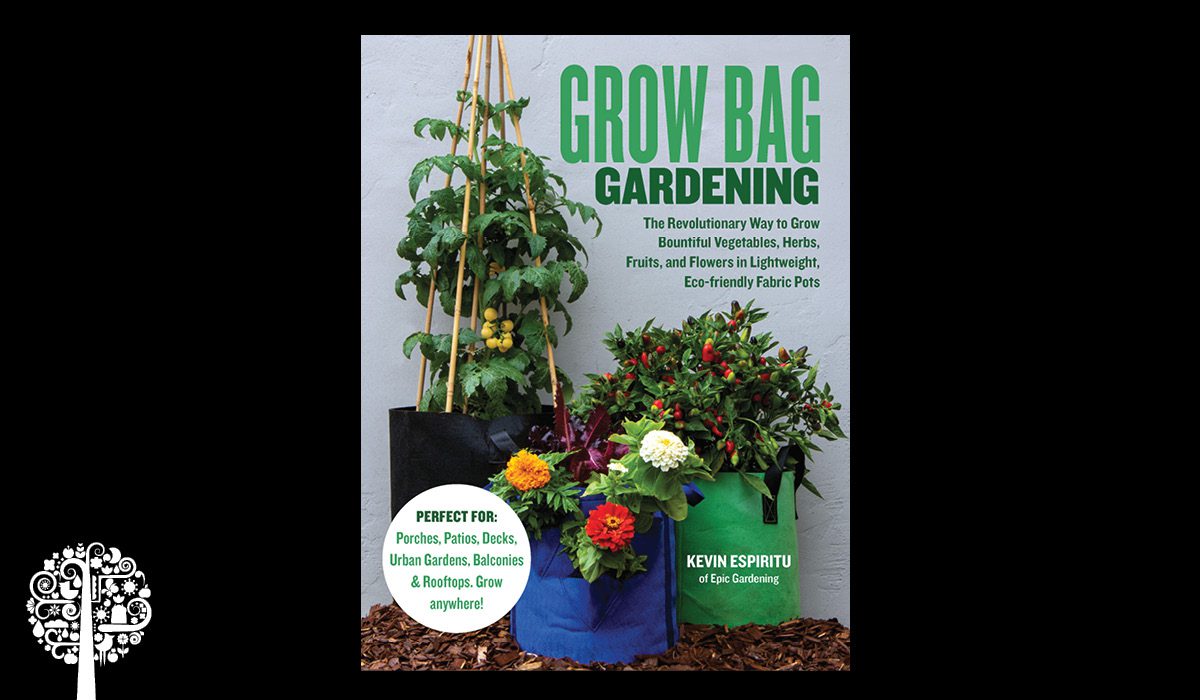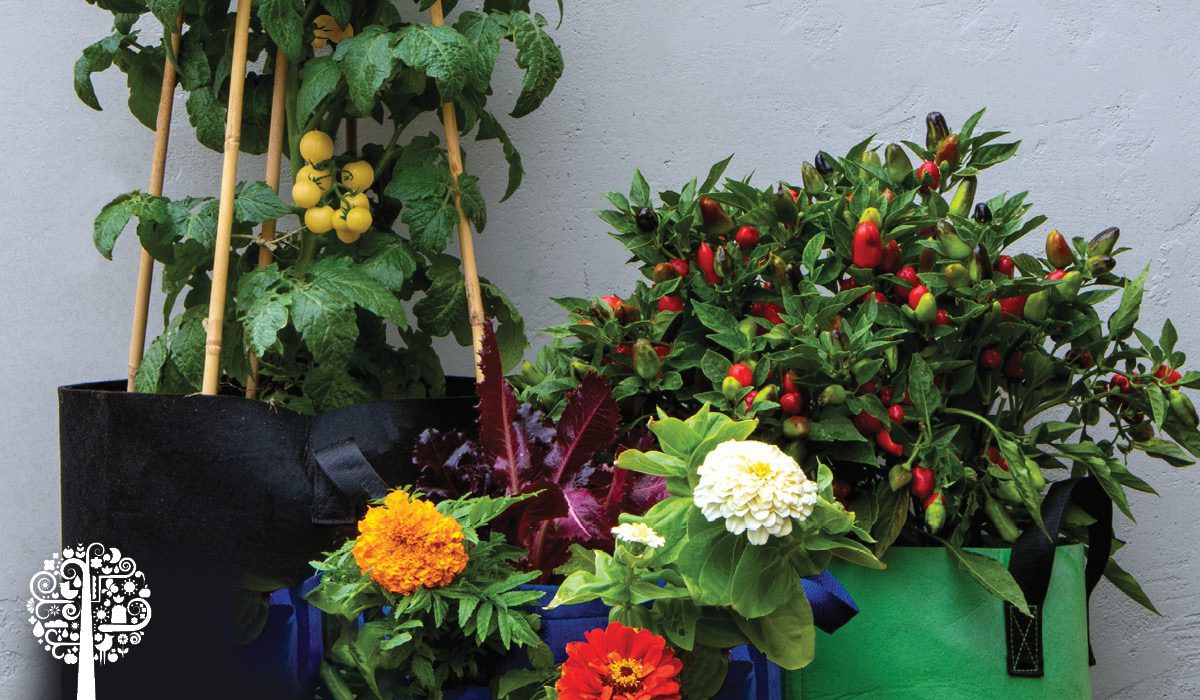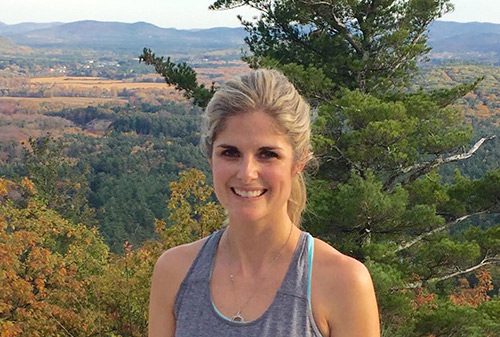Grow Bag Gardening an Easy and Eco-Friendly Way To Grow Food
As more and more people look to grow their food, container gardening is on the rise, especially in urban areas where space comes at a premium! Grow bags, in particular, are gaining popularity for their lightweight, eco-friendly qualities and the fact that they lead to significant yields in the garden. In his new book, Grow Bag Gardening: The Revolutionary Way to Grow Bountiful Vegetables, Herbs, Fruits, and Flowers in Lightweight, Eco-Friendly Fabric Pots, gardening guru Kevin Espiritu (founder of Epic Gardening) offers incredible tips and tricks to reap major rewards in the garden. Here, he fills Garden Culture in on some of his secrets!

Can you grow anything in a bag?
Technically, YES! But there are a bunch of crops I’d advise against. Long-lived perennials like asparagus, for example, would simply be best grown in-ground or in long-term raised beds. Fruit trees are 100% possible, but only with correct bag selection and care (larger bags, 25-gallon minimum).
What makes grow bags more special than your average container?
The magic of grow bags is in their air pruning benefits. Most containers cause root-circling as the roots grow ‘past’ the container but have nowhere to go. So they circle around and around, creating an unhealthy root structure. With grow bags, the root tips die when they reach the edge of the bag due to the porous structure and then cause the plant to grow a more fibrous, distributed root structure.
What should gardeners look for when selecting a grow bag?
I think 7-gallon bags are a minimum for most crops as far as size goes. For quality, go with a trusted brand like Smart Pots. Something with thick material that doesn’t fall when you stand it up with no soil inside. Handles are a nice bonus, especially with the bigger bags.

What is one of the most common mistakes people make when growing in bags?
Watering mistakes are the most common. The air pruning benefits of bags also mean water drains out quicker, so you have to be on top of it. Mulching with 2-3″ of grass clippings, leaves, etc., helps keep water in, but you’ll often have to up your watering frequency as compared to a traditional container.
I’ve been planting one crop in my grow bags (one mini-pumpkin variety or zucchini plant in a 25-gallon, one determinant tomato in a 10-gallon, one pepper or eggplant in a 5-gallon). But based on your book, it seems like I’ve been doing this all wrong, and you can plant multiple plant varieties in the bags; I’ve been missing out!
You totally can mix in different plantings, though your selections are often best-grown solo! Pumpkins and tomatoes will do perfectly fine in their own bag. On your tomato, I might recommend planting something like lettuce or basil below once it’s matured, as you often prune off the lower leaves in those cases and can squeeze in a ‘living ground cover’ as a secondary planting.
What are some of your favorite crops to grow?
I’m obsessed with POTATOES. I grow at least 100lb of them a year and store them, even in sunny San Diego. I’m also a huge fan of any and all root crops; the satisfaction of pulling them out cannot be beaten.
COVID-19 sparked a newfound interest in the grow your own movement. Can you suggest easy edible plants to get newbies started?
I always say, “Grow the #1 crop you’re MOST excited to eat.” The reason being, if you don’t care about it and are only growing it because it’s easy, then you’re not going to care if it dies. So while I do recommend easy crops like lettuce, herbs, etc…make sure you actually want to harvest and eat it.
And for more experienced gardeners, some more challenging ones?
Huge fan of luffa gourds. If you can get them going, they’re a prolific producer and allow you to harvest your own bath sponges. In one year, you should be able to grow enough to have sponges for a decade!
You only discovered gardening as an adult, yet you’ve managed to turn your passion into a successful business that helps millions of people worldwide across several platforms. Your journey is inspiring! While not everyone achieves Epic Gardening status, do you think we all have it in us to become skilled growers?
100%. I like to think of gaining skillsets as becoming “less bad” rather than “more good”, so if you seek to make mistakes, learn from them, and keep expanding your knowledge base, you’ll wake up a season or two later with a MUCH greener thumb.
Grow Bag Gardening: The Revolutionary Way to Grow Bountiful Vegetables, Herbs, Fruits, and Flowers in Lightweight, Eco-Friendly Fabric Pots, by Kevin Espiritu, is available online at most major bookstores.

- Catherine Sherriffs
Trending Articles Today
Similar Articles
Container Gardening 101: Thrillers, Fillers, And Spillers
Whether you have just a small balcony or a sprawling yard, containers are a fantastic way to add beauty to your outdoor space. They look

Better Container Vegetable Gardening
Many people have taken up container vegetable gardening in the past few years. It’s popular for many reasons, including the fact that it can mean

Organic Is Best – Even In Containers
Growing your own food in containers provides the solution to a lot of situations. No matter where you live, containers allow you to grow on

